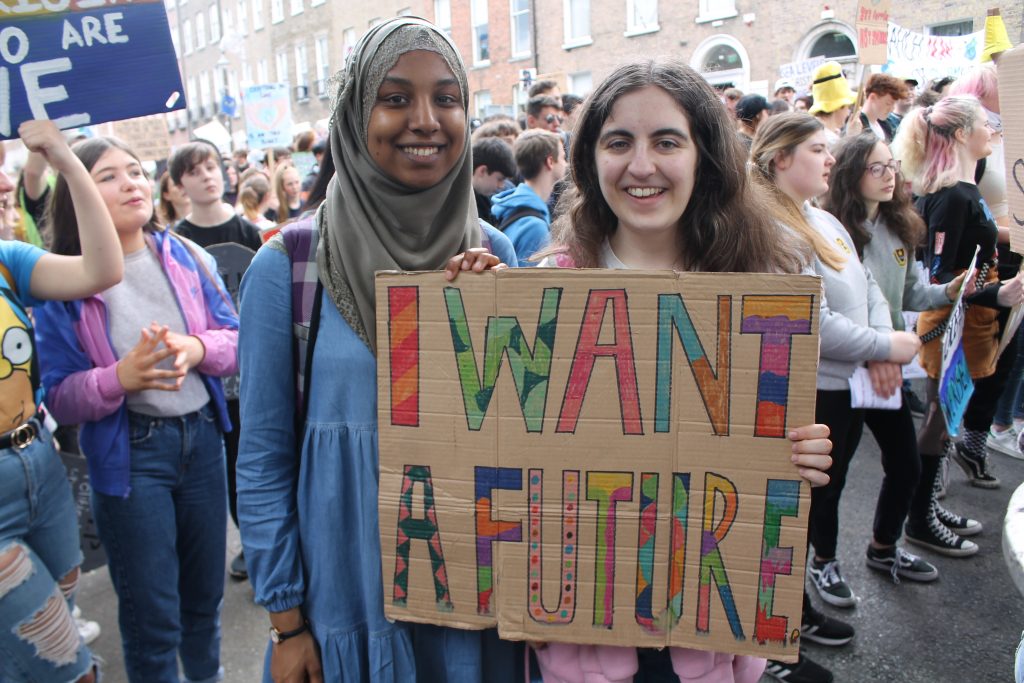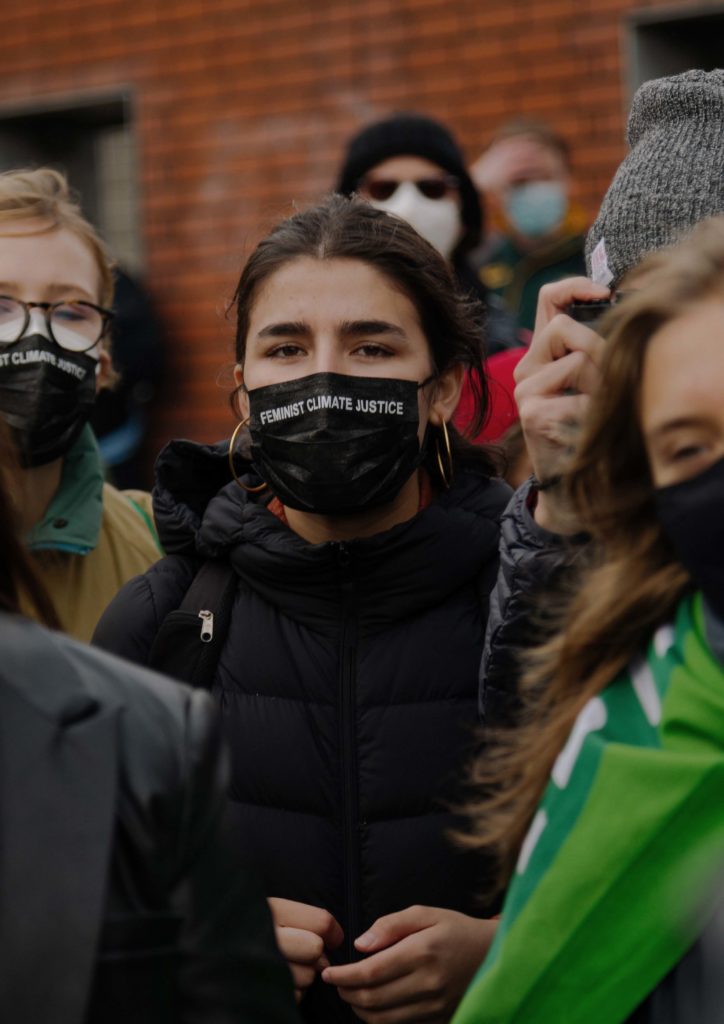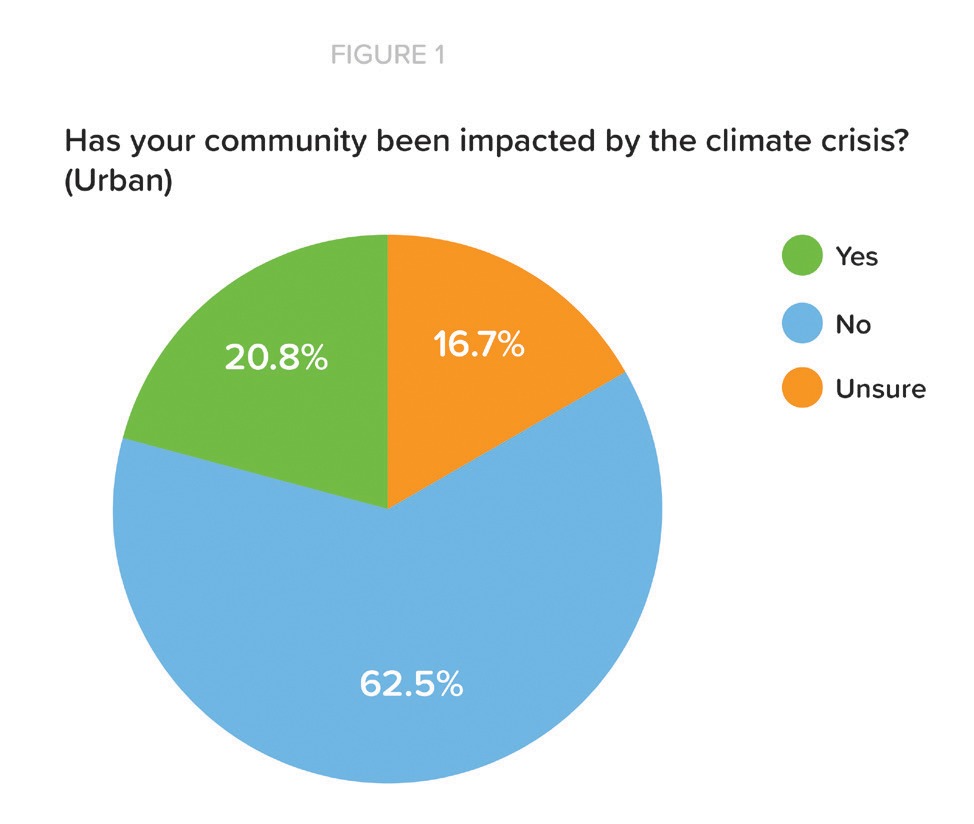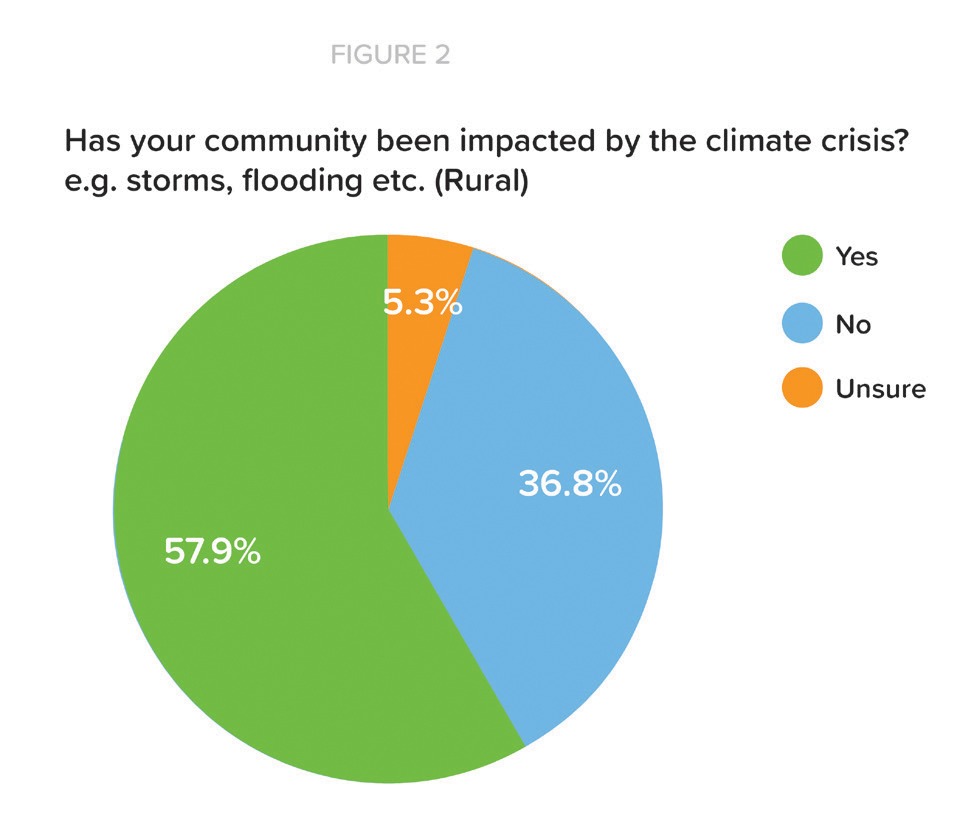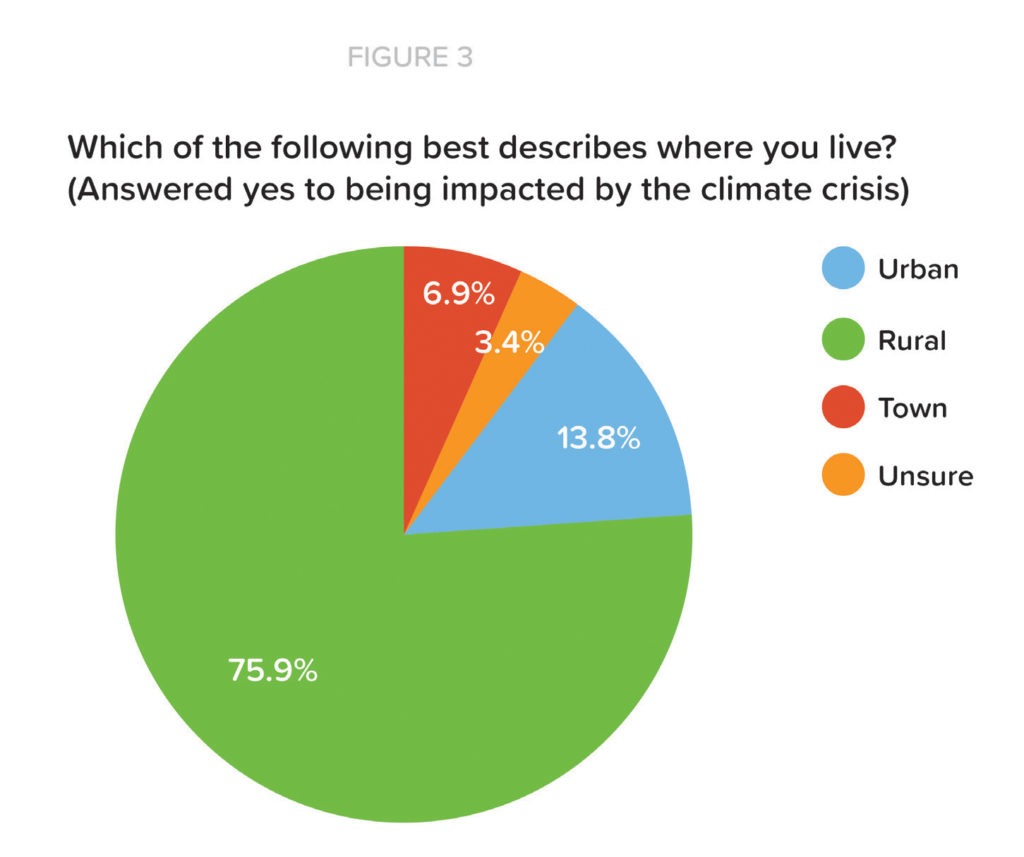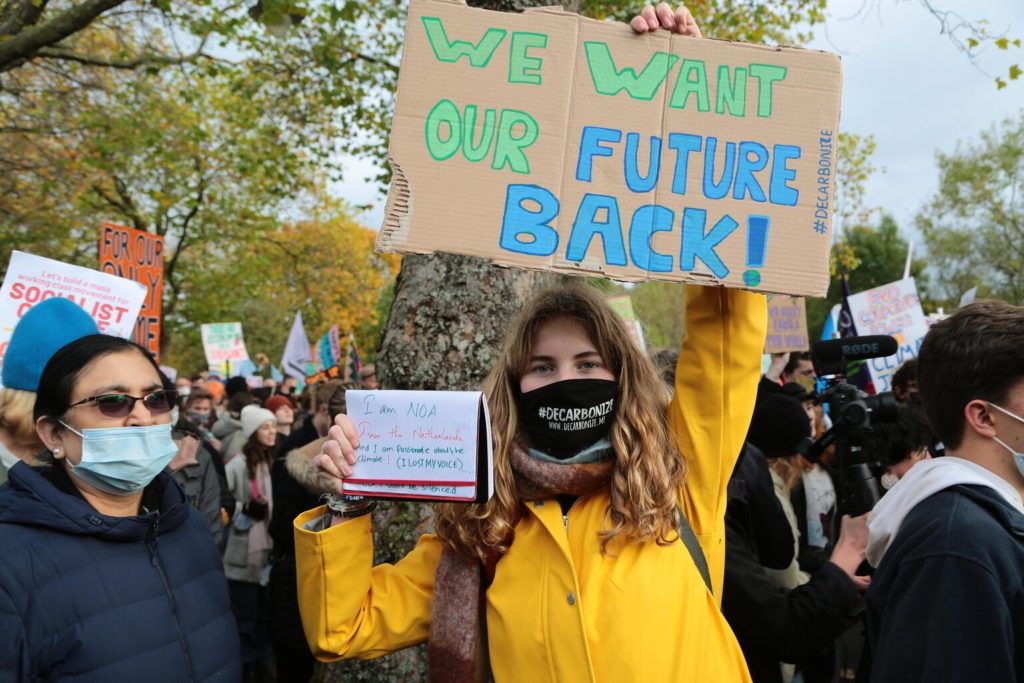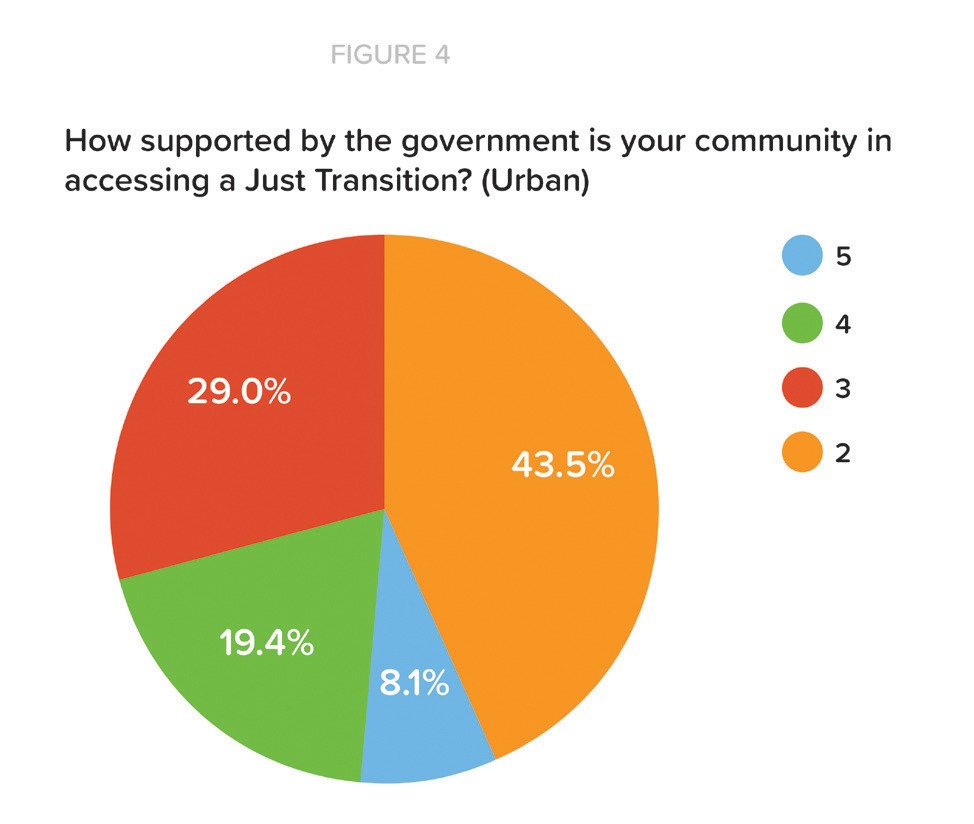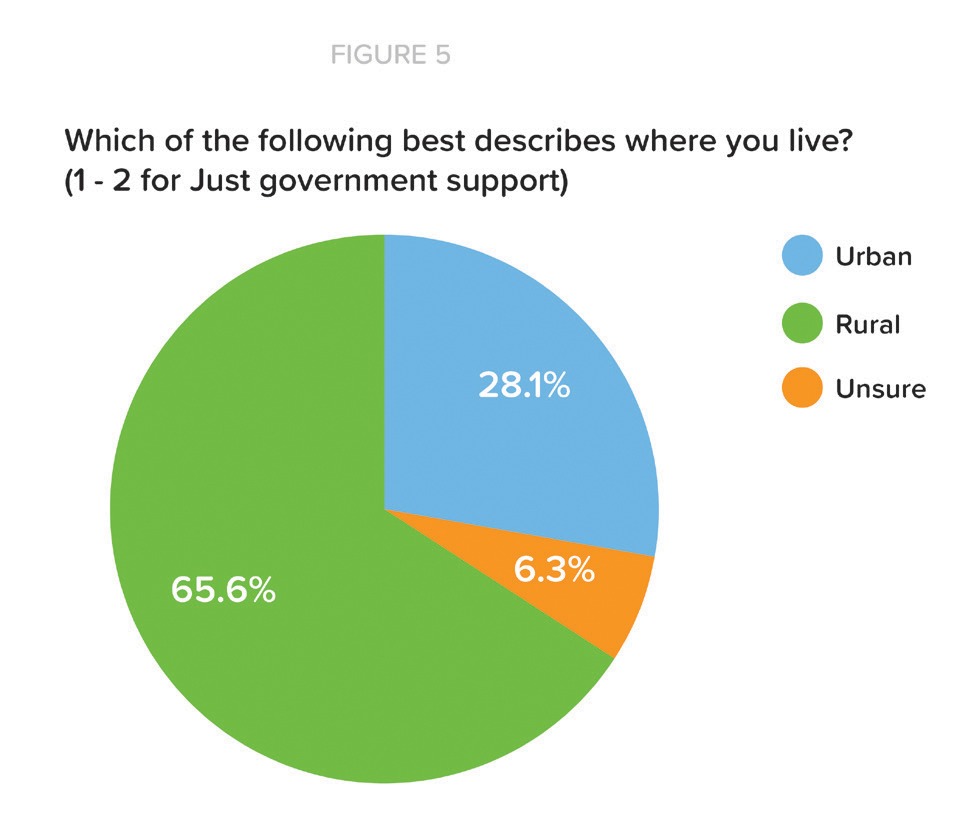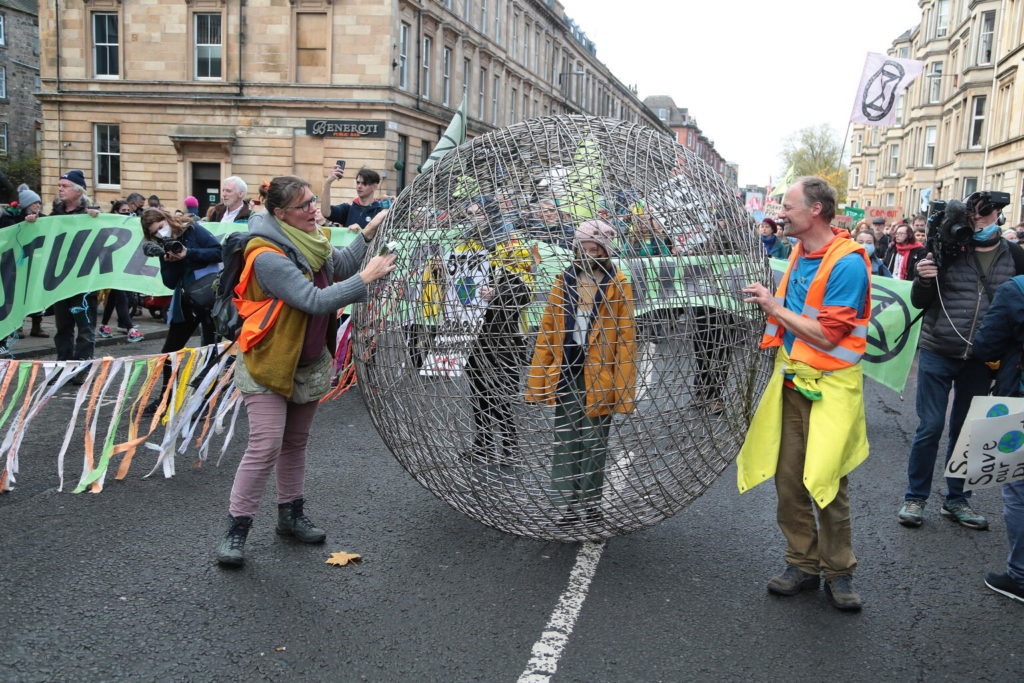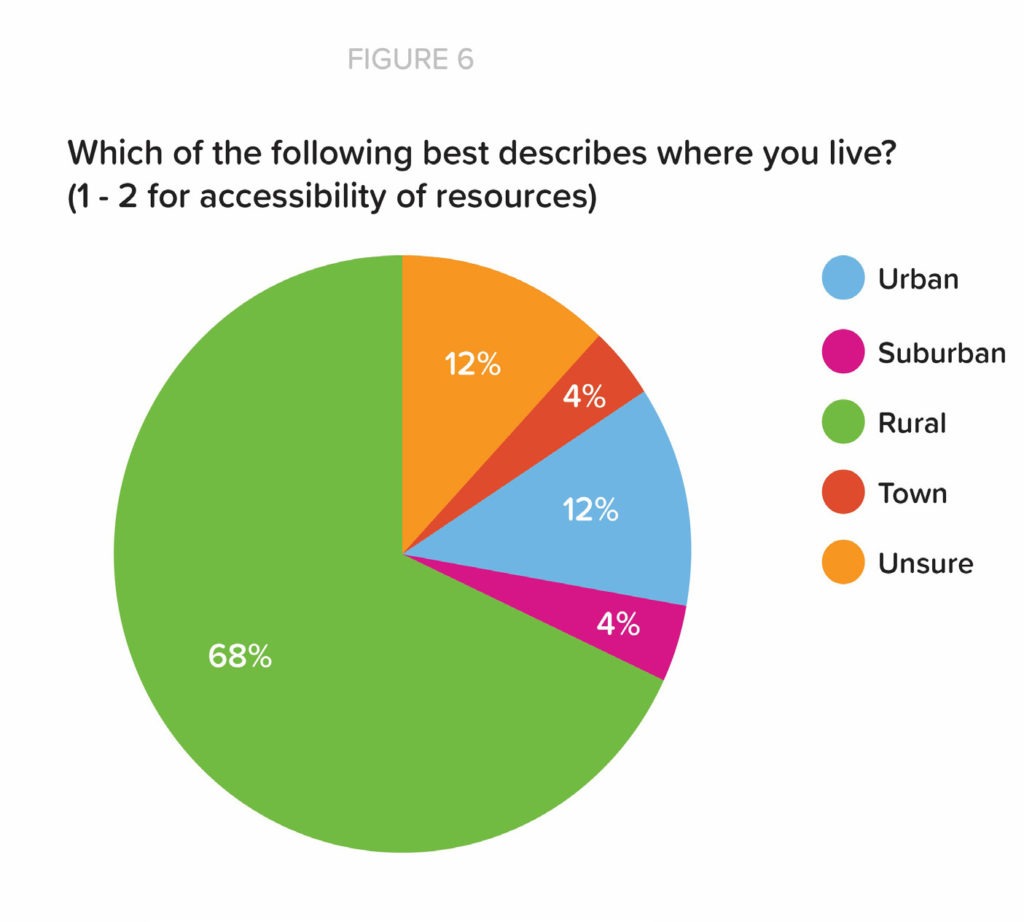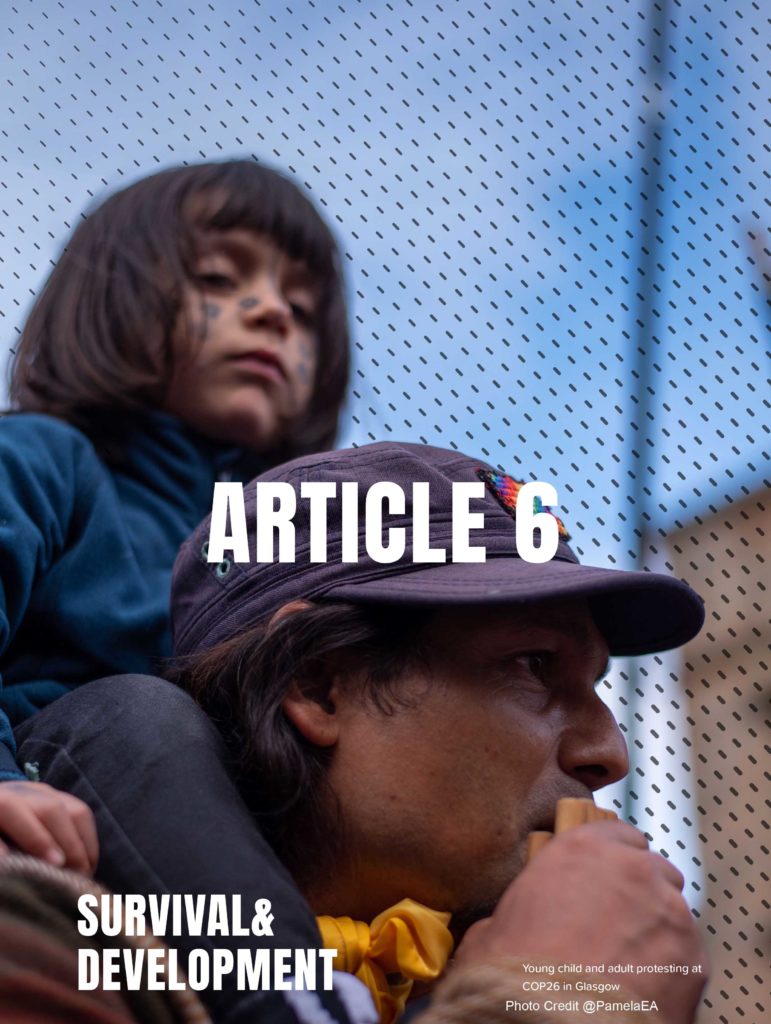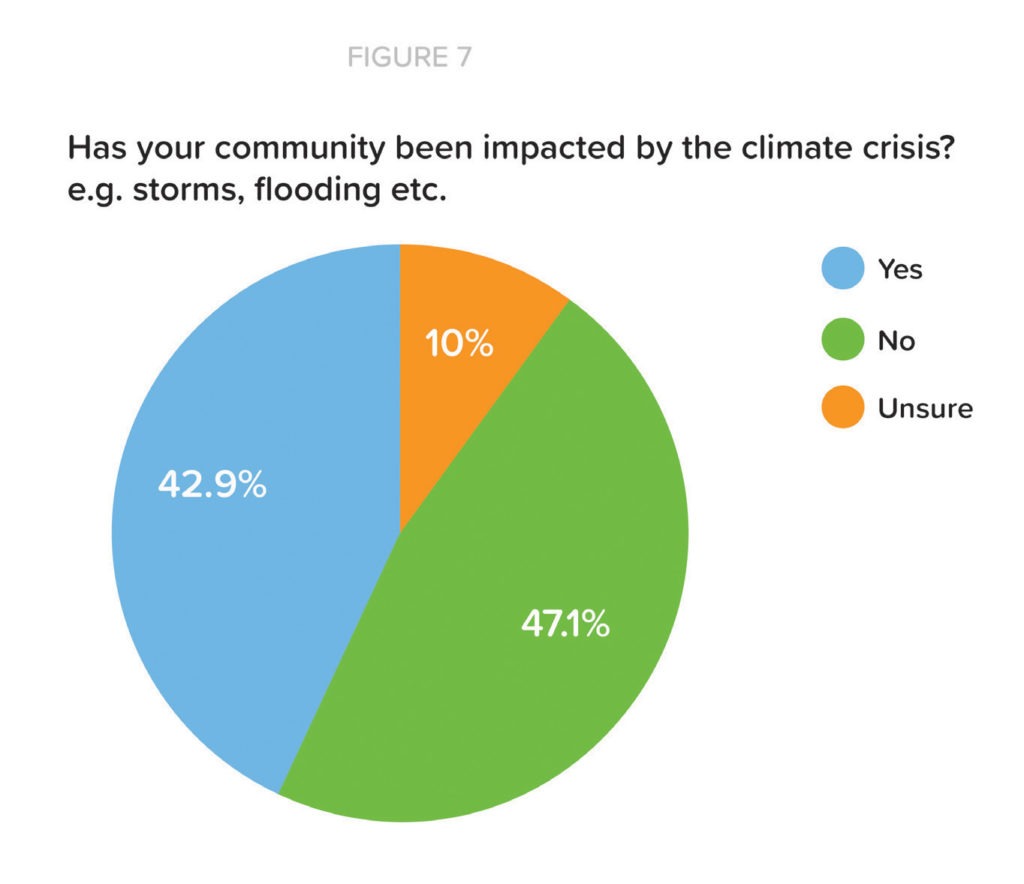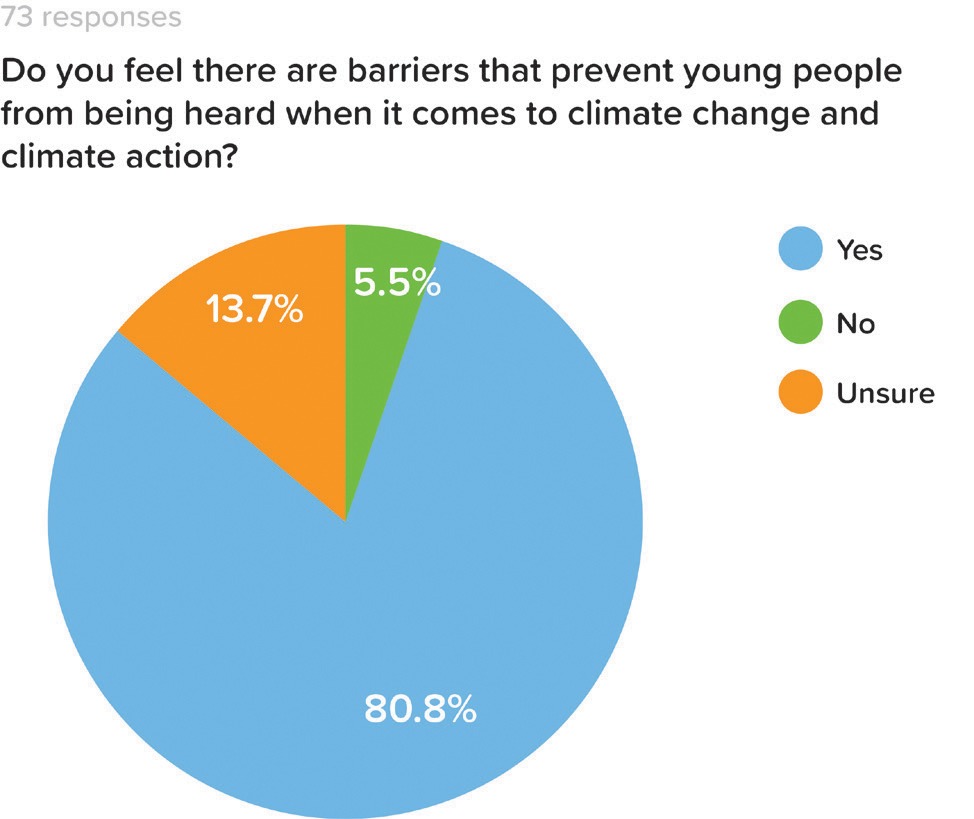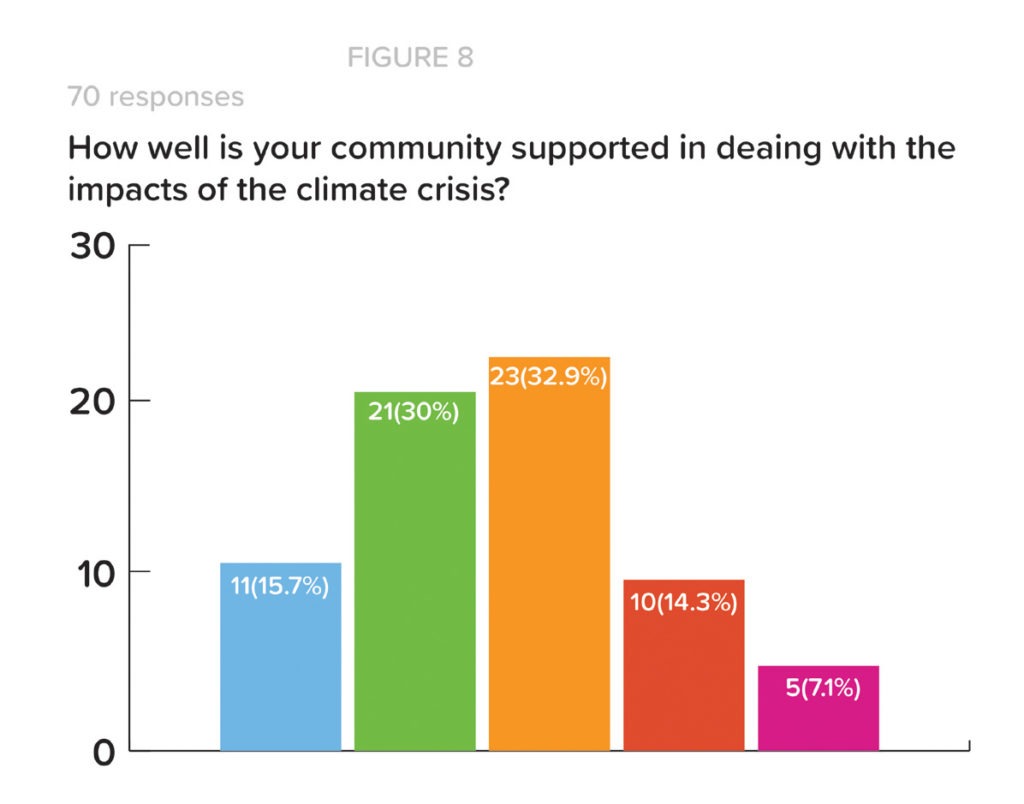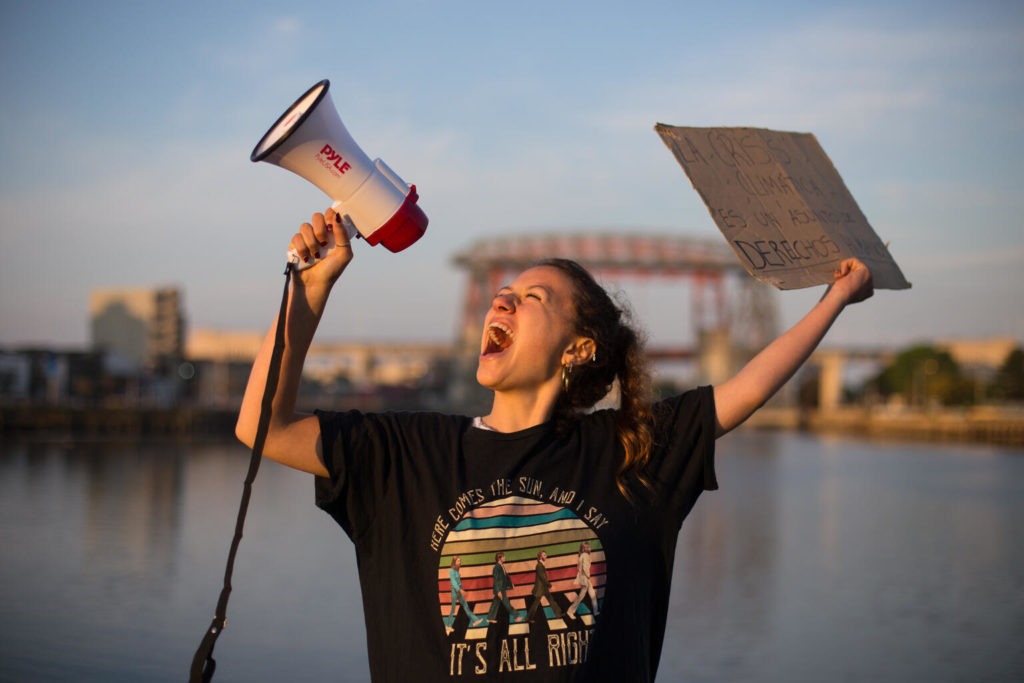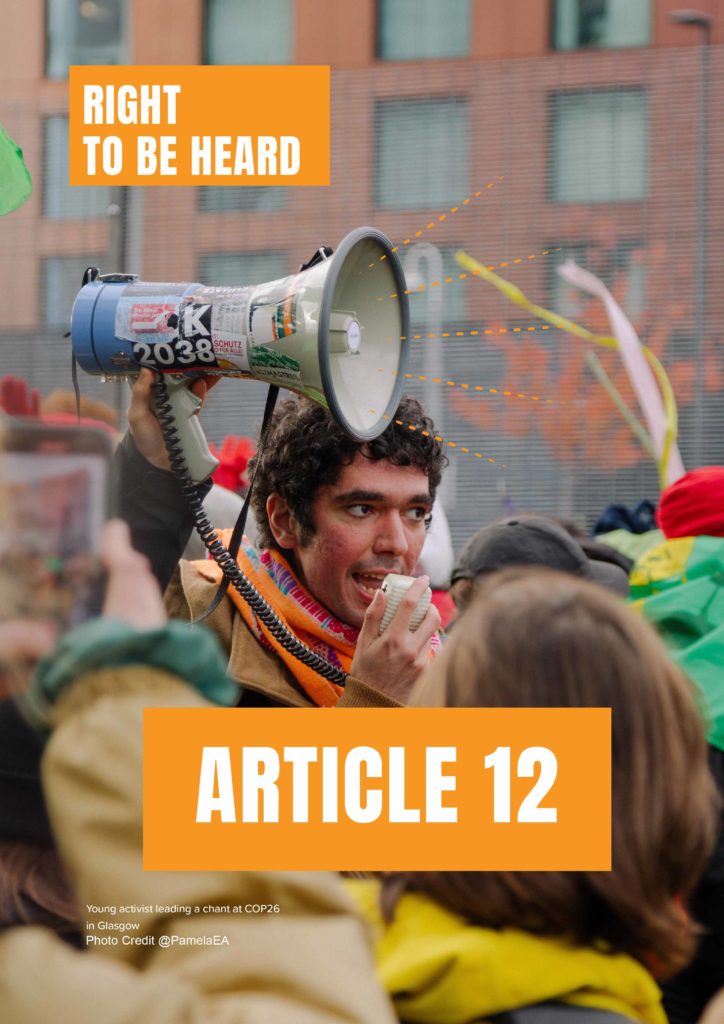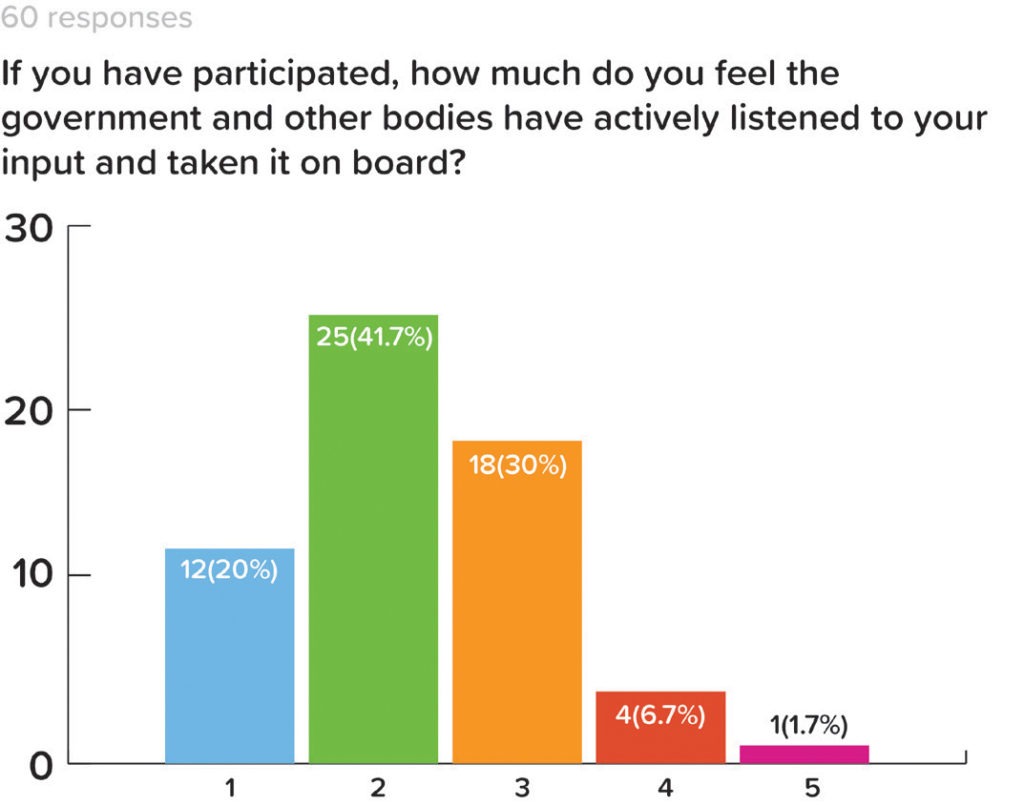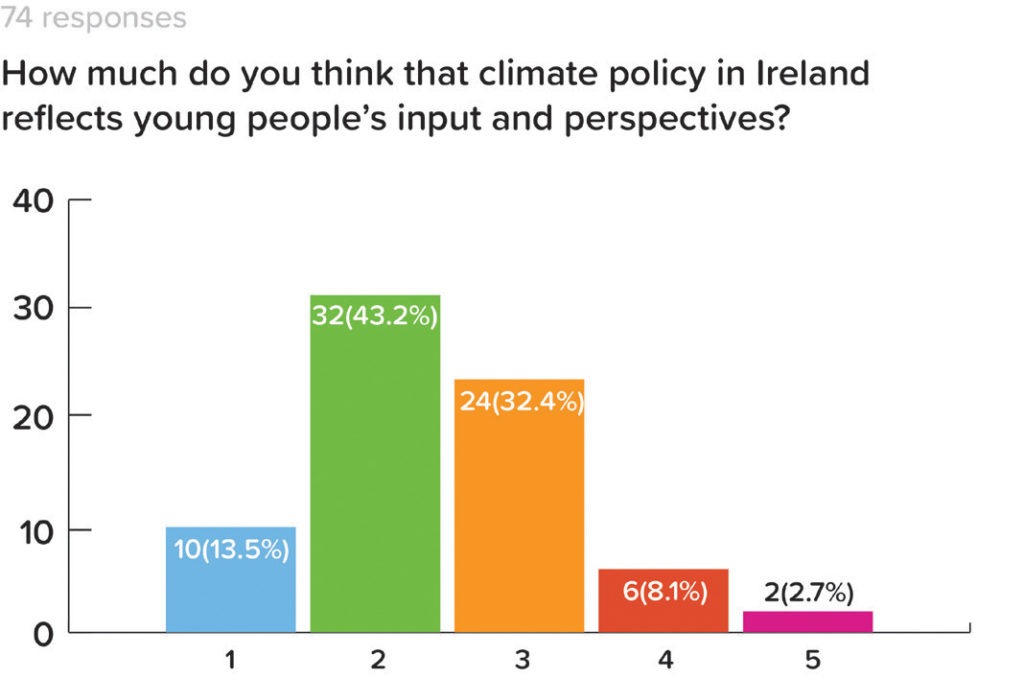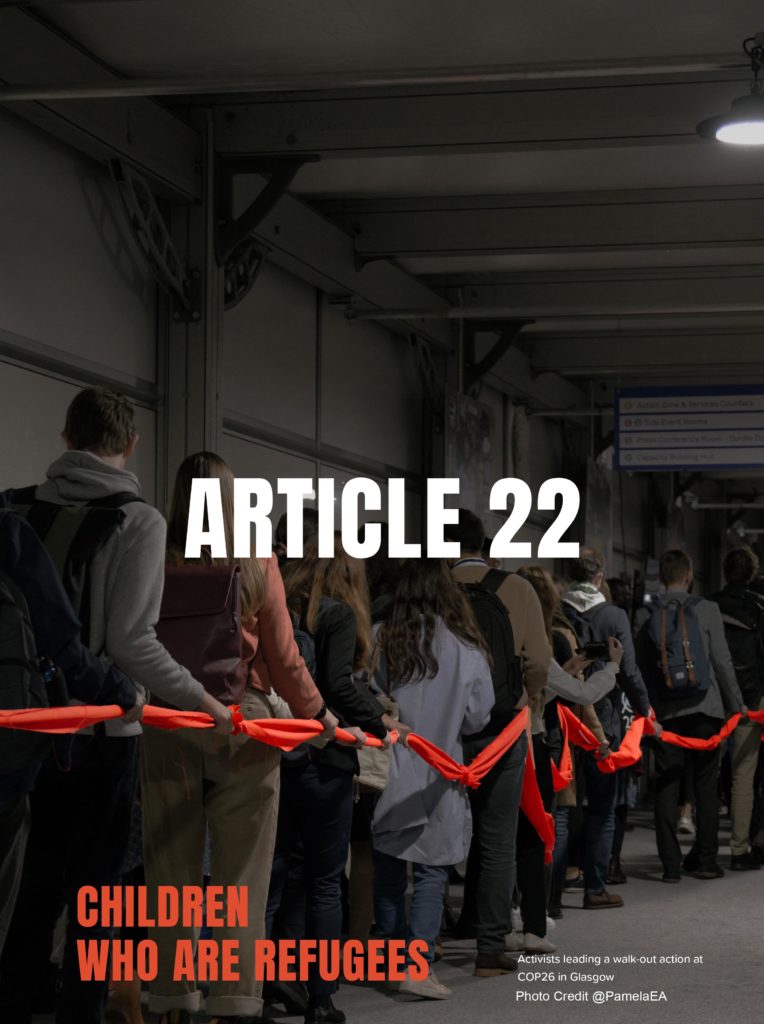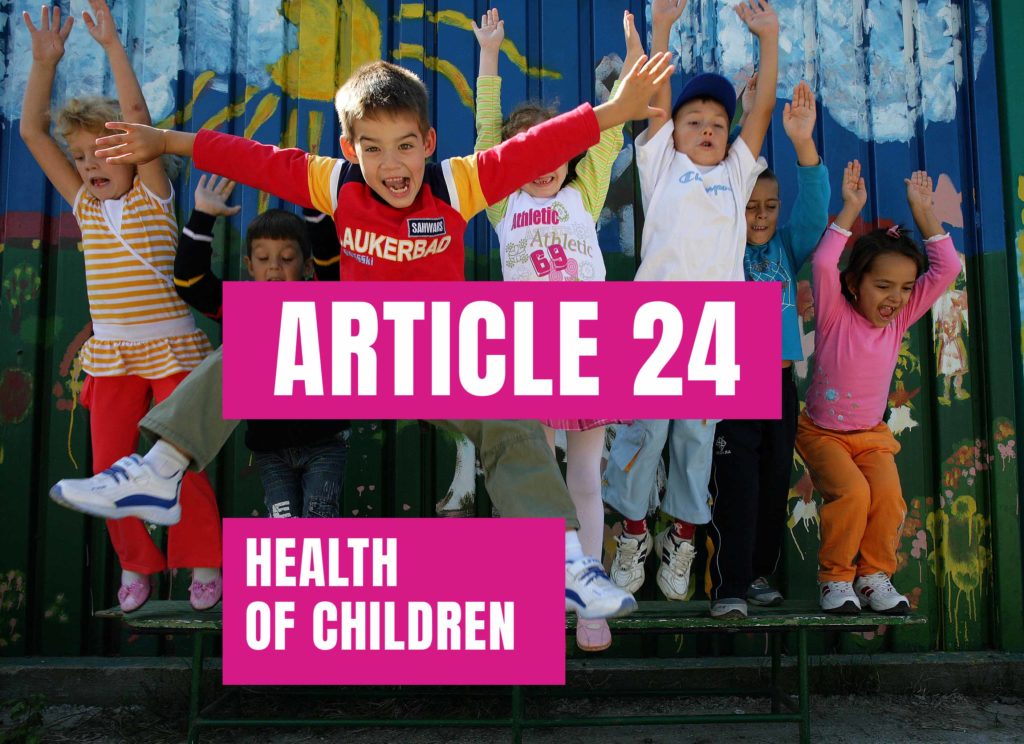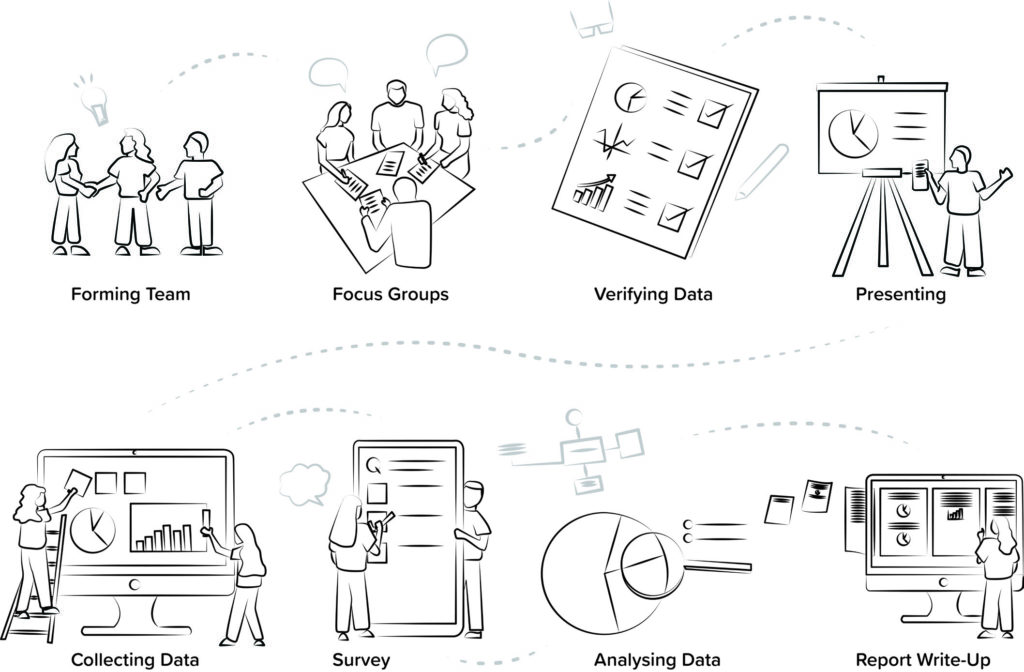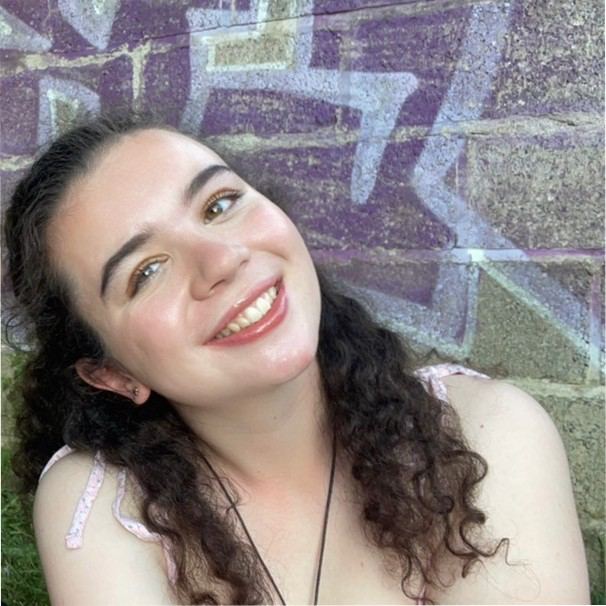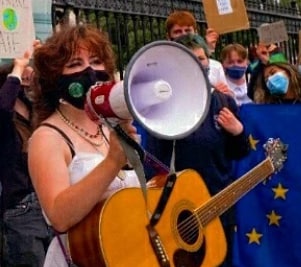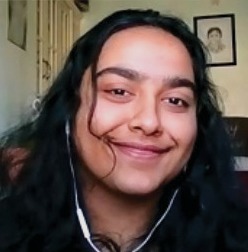THE CLIMATE CRISIS AND ITS IMPACT ON CHILDREN’S RIGHTS IN IRELAND – This is a report that we as a group of young people submitted to the United Nations Committee on the Rights of the Child in support of its State review of Ireland’s progress in implementing the Convention on the Rights of the Child. This review happens every five years and the Committee asks for children and organisations representing children to share their views on how well children’s rights are being upheld. While many comprehensive reports were being written, as climate activists we felt the climate crisis was being ignored. So while the COVID pandemic kept us off the streets, we decided to get online and continue pushing for change by researching and drafting this report.
Who we are
Climate Rights Ireland is a group of young people working with the support of UNICEF to investigate how the climate crisis interacts with children’s rights in Ireland. We are a team of young people, led by young people, who created this report on behalf of young people to the Committee for the Rights of the Child. We hope this report will catalyse change and drive a shift in Ireland’s performance on the climate crisis and children’s rights.
What we want from this report
We have included key recommendations under each Article for the change the Irish government ought to deliver. Ultimately, we want systemic change that places the rights of children and the planet at the forefront. We want justice, equity, and a sustainable society. Our aim is that future reports do not need to highlight these issues and that this report can act as a mechanism for this change to be delivered.
Main Findings of the Report
The Rural-Urban Divide
In exploring the lived experience of children in Ireland regarding the climate crisis and the rural-urban divide, we found a disproportionate impact of the climate crisis on rural areas, and a need for the provision of necessary resources for those who are affected.
We consulted young people on
- The impact of the climate crisis
- Their access to resources and support
- Their access to a just transition (a transition to a more sustainable world that protects those who are most vulnerable in society, like children)
The Impact of the Climate Crisis on Children in Rural Ireland.
-
- Children living in rural areas disproportionately experience the impacts of the climate crisis
- 58% of rural respondents (Figure 1) had been impacted by the climate crisis, compared to just 21% of urban respondents (Figure 2), which shows us that rural children have been much more heavily impacted.
- Only 31.4% of Ireland’s population live in a rural area, but rural respondents made up over ¾ of the total respondents who said they had been impacted by the climate crisis (Figure 3), this is a disproportionate impact.
Support for young people in accessing resources and managing impacts
- We found a notable gap between rural and urban respondents in the level of support offered to achieve a just transition.
- 65.6% of those who rated the support offered to their community in the 1-2 (lowest) range were from rural areas. Not a single urban respondent gave a score of 1 (lowest). (Figures 4 and 5)
- One young person commented, “How can we have transitions to solutions that don’t even exist”.
- This is a particular issue for the farming community, “[there are] no grants which most people need, e.g small farmers cannot afford greener options”.
- There was another gap in how accessible resources were. 68% of respondents who reported inaccessible resources were from rural areas, compared to 4% in suburban and 12% in urban areas (Figure 6)
- “I live in a rural area and though we have the space for greener alternatives, we are never paid any heed, or given any options”.
- There are gaps in the quality of resources available, a participant noted that electric cars at petrol stations are “often broken, which turns people off switching to electric cars”.
- Furthermore, young people often have to find climate information from sources outside school. “[There are] not many physical resources but I am fortunate enough to have good WIFI and internet connection so I can find plenty of resources online.” When asked where they find information about the climate crisis one rural participant said ‘Only online and only if I seek them out myself’.
Recommendations
We believe our recommendations will work to reduce the disparity between rural and urban areas, and also increase the ability of children to access opportunities in education and employment.
- Transport
- We need comprehensive rural public transport infrastructure
- Ireland should work towards 15-minute cities that are walkable and accessible by public transport
- We should have increased pedestrianisation in cities
- Just Transition
- The government needs to meaningfully engage with and support rural Ireland.
- The government should economically incentivise sustainable farming and support the farming community
- The policy emphasis should be on corporations and those who are most responsible for the climate crisis.
- The government must engage with children in the Travelling Community.
- The government should provide more community resources such as bins, benches and cycle paths.
- There should be more accessible grants for electric cars and solar panels.
- The government should work on retraining workers and supporting continued employment in alternative and sustainable sectors.
- Education
- The government must implement Education for Sustainable Development.
- The government should introduce a TY module on climate action
- Education should focus on empowerment and developing key skills.
- Free third-level education should be provided.
- There must be comprehensive youth involvement in designing education, with youth voices at the forefront.
This includes increased flooding and extreme weather events such as Storm Ophelia, which participants stated negatively affect their everyday lives.
- One participant stated their crops are dying more frequently in Ireland’s heat waves.
- Another participant raised flooding in Cork City, and the negative effect on their sense of safety, the local economy and livelihoods.
- Participants described excess water waste during heatwaves and heating during “freezing winters”.
- Many participants also discussed increased anxiety as a result of these weather conditions.
Children outlined a negative impact on their mental health and sense of security resulting from this. This included:
- Feelings of anxiety
- A burden of responsibility
- A lack of climate action by the government
- A lack of adequate support
There were also fears about children’s future and development.
- They outlined feeling “helpless and hopeless”, stating “the future is honestly terrifying”
- Participants outlined that climate change has impacted their plans for the future. They are “unsure” of what the planet will look like, and stated, “climate change threatens the existence of their future”.
- Children asked “do I want to bring children into a world with climate change”
How, if at all, has the climate crisis impacted your mental health and feeling of security?
- “Climate change has made me question if I have a future. It’s horrible to know that climate change will probably cause my death and yet no one seems to be doing anything about it”
- “The poor air quality due to climate change and other industrial work in my town has severely harmed both my physical and mental health”
- “The government has done nothing about [the climate crisis] and it makes me fear for the security of my fellow townspeople and I”
- “I am in constant fear of losing my family as a result of climate change (e.g. due to air quality), as someone who is very anxious it causes me a lot of mental stress and depression”
- “General climate anxiety gets to me when I consider my future and if there will be a liveable future at all”
Regarding support, children outlined a lack of adequate support for dealing with the climate crisis’ impacts.
- 15% of participants gave the lowest score of 1 when asked “how well is your community supported in dealing with the impacts of the climate crisis?”
- Over ¾ (78.6%) gave a score of 3 or below (Figure 8).
It is clear that the climate crisis is having a negative impact on children’s mental health and sense of security, compounded by a lack of action. Participants also described a lack of adequate mental health support which, coupled with a lack of effective climate action, further damages children’s sense of security and safety.
Recommendations
- Systemic action to tackle the climate crisis.
- Clear communication of action being taken, without greenwashing.
- Investment in and expansion of mental health services for young people.
- Community support for resilience and adaptation to protect young people from the impacts of the climate crisis.
Engagement of Children in Decision Making
The aim of this section is to illustrate, with the aid of statistics, how engaged and involved young people in Ireland feel in terms of climate action, climate policy, and decision-making.
The data below illustrates that young people do not feel listened to in climate policy in Ireland. Where spaces are created, their input is not meaningfully taken onboard. These spaces can be inaccessible, tokenistic, and lack impact. These must be reformed to provide accessibility, accountability, and support, as outlined in our recommendations.
Our Findings
The key answer from Focus Groups and the survey about whether the government listened to young people was no.
- Lack of meaningful listening:
- It was found that young people in Ireland felt that their voices were being tokenised and then brushed aside, ‘it most feels performative’
- Focus Group members took the necessary steps to engage their decision-makers but faced ignorance or disregard for their concerns.
- The few who felt somewhat listened to by the government stated that it never translated into real policy and change.
- Young people stated that they felt heard but not seen by the Irish government. They felt that their strikes were heard but the necessary action needed didn’t follow. They expressed their disheartenment for this because they are deeply concerned for their future, or what is to come of it.
- One young person stated that they emailed ALL their representatives and only received 1 response. Young people stated that they have no avenues to directly communicate their concerns and opinions and demands to their representatives.
- One member said our voices are ‘rarely ever taken on board to the extent that [they need] to be’
- Lack of spaces to engage:
- Young people stated that they felt there was no clear space in Ireland for young people to state their concerns and give their input. This made them feel closed off from the decision-making sphere.
- Some young people felt that there were sometimes opportunities to be listened to. But they agreed that there need to be more clear and open avenues of communication for young people to speak to their decision-makers. They felt that their opinions hold value as it is their future in danger.
- The lack of climate and political education aimed at creating skills and youth engagement was raised.
- Government language and processes can be inaccessible and full of jargon.
- Lack of representation of young people in policy-making spheres.
- Lack of sense of urgency
- Young people stated that they felt the government understood the severity of the issue but didn’t fully comprehend the urgency of climate justice.
- They felt isolated in their wants for immediate climate justice-oriented action as the government seemed to be focusing on small-term mitigation and long-term tactics to reduce the impact of the climate crisis.
- Barriers to engaging
80% of participants felt there were barriers preventing young people from being heard on the climate crisis. Below are quotes from participants describing this issue:
-
- ‘Young people are not respected’
- ‘Dismissive attitudes from adults and politicians’
- ‘Not being taken seriously
- ‘As youth, our voices seem to be neglected as we are more so looked at as underage and most adults would think that we are either disrespectful or we don’t know what we are talking about but we are the future and it’s us that should have a say in a lot of climate-related discussions’
- ‘Lack of communication, lack of respect and attention given by the government, no information exchange between youth and government body’
- ‘The government won’t listen and take on what the young people say, they hope we will stop but we won’t.’
- ‘Their level of education on how the state operates politically, as this restricts them from understanding what happens with their expressed voices at a national level. And how much of that voice is taken not only ‘on board’, but is actually acted upon.’
- ‘No one really takes us seriously until it’s way too late.’
Recommendations
The overwhelming call from participants was one for accountability, accessibility, and support to solve this issue.
- Accountability
The Irish government must be accountable to young people and translate their input into real policy, rather than a box-ticking exercise.
-
- The government should follow up on the ideas raised by young people. They should communicate clearly about the next steps and how young people will continue to be engaged. There should be measurable, impactful consequences of all youth engagement.
- Youth engagement should focus on broader, systemic issues of policy rather than solely on individual change.
- The government should improve the distribution of public funds for climate justice and consultation.
- Young people should be included in the Climate Change Advisory Council.
- Comhairle na nÓg should be reformed.
- Representatives should regularly consult young people.
- The government should establish a Youth Citizens Assembly on climate with a binding mandate.
- Accessibility
The government should provide clear and accessible mechanisms for young people to engage with their decision-makers.
-
- They should encourage young people of all backgrounds to engage, including those with no prior experience in the climate movement.
- These spaces should include comprehensive and accessible information to help participants engage.
- These should be widely communicated and should aim to be representative of Ireland’s youth population.
- These should be accessible to all.
- The government should explore lowering the voting age.
- Support
-
- The government should improve funding for youth organisations
- Education for Sustainable Development must be provided and improved at all levels.
- Education and support should focus on climate justice, science, and intersectionality. It should be aimed at empowerment and skills development.
The Climate Crisis and Refugee Children in Ireland
This part of the report deals with the connection between the climate crisis and refugee children in Ireland, in particular children living in Direct Provision. To conduct our research, we met with members of Abolish Direct Provision (DP) to communicate the lived experience of children impacted in this area.
Our findings:
- The climate crisis is impacting children across the world, with approximately 1 billion children at ‘extremely high risk’ of the impacts of the climate crisis. Since 2008, there has been an average of 67,000 displacements each day as a result of floods, windstorms, earthquakes, or droughts. Despite this, the term ‘climate refugee’ has no international legal recognition.
- Abolish DP outlined the climate crisis also affects how children travel to Ireland, for example, it may prevent them from walking or sailing.
- Children make up almost 30% of Direct Provision residents.
- Abolish DP stated ‘the trauma inflicted in this system harms children’s mental health and well-being. Some people stay in DP for up to 20 years. This acts as incarceration’
- Key issues for children in DP are impacts on mental health, restriction of movement and freedom, loss of motivation and lack of independence.
- We must connect climate action to refugees, the climate crisis forces people to leave their homes and the two struggles are connected.
Recommendations
- A change in the length of time for cases to be resolved- they should be resolved in under six months.
- An end to people profiting off of the incarceration of children in DP.
- People in DP should be able to grow food and have food sovereignty.
- Abolish DP stated Ireland should be taxing corporations and monitoring the gas release of large corporations.
The Climate Crisis and the Protection of Healthy Environments for Children
According to UNICEF’s Report Card 17 Places and Spaces, Ireland ranks in the top three countries for providing a healthy environment for children within its national boundaries. Despite this, it ranks only 20th out of 39 wealthy countries for protecting the world’s environment for children. Ireland has high rates of emissions, e-waste and consumption which contribute to this low ranking. If everyone in the world consumed resources at the rate of people in Ireland, we would require the equivalent of more than three earths to satisfy this.
Alongside Ireland’s impact on the health of children and the world environment, there are significant environmental concerns for children’s health at home. One child in 50 (2%) is being poisoned by lead, one of the most dangerous environmental toxic substances. Lead is globally responsible for more deaths than malaria, war and terrorism, or natural disasters. Additionally, one in six (16.6%) poor households with children find it difficult to heat their home, an issue which is likely to become more pronounced as the energy and climate crises grow.
Ireland’s children are facing significant environmental impacts and concerns, as we have discussed, including impacts on their homes, security and well-being. Ireland’s environmental record is also threatening the health of children worldwide and it is among the top contributors to pollutants destroying the global environment.
Recommendations
1 Ireland must reduce its waste output, air and water pollution and invest in sustainable practices such as high-quality housing and public transport.
2 Ireland must improve environments for the most vulnerable children, and ensure these children are heard in policymaking.
3 Ireland must put children’s rights at the forefront of environmental policy.
4 The government ought to address loss and damage resulting at home and abroad from climate change and work with other governments to do so.
5 The government must recognise and implement the right to a healthy environment.
6 Implementation of the recommendations in this report, alongside continued meaningful stakeholder engagement.
This report is the product of consultation with a large group of young people from across Ireland. It is imperative that young people, especially those who are not often heard by those in power, are engaged and consulted at every step along the way to a Just Transition.
It is clearly evident that adequate action is not being delivered in the four areas examined throughout this report. However, there is still time for a radical shift in the right direction. We have presented our ideas for change through our recommendations, and we ask that our government deliver upon these. Now, more than ever, we need an evolution in our way of thinking in order to deliver a better, brighter future.
Methodology
Beginning the report:
-
- We formed the Working Group and met to outline the main focus of the report.
- We met with UNICEF and CERI to discuss prior work on children’s rights and the climate crisis and how this report can contribute to the wider conversation.
- We decided to structure the report around 4 key articles of the UNCRC and how they relate to children’s rights and the climate crisis: Articles 2, 6, 12 and 22.
- We created a timeline to plan out the report.
Collecting data:
In order to make sure our data was as representative of the population as possible, including children of all backgrounds and levels of familiarity with the climate crisis, we collected research through a variety of methods.
Survey:
We conducted a survey of children across Ireland regarding Articles 2, 6, and 12. The survey included questions around participation, impacts of the climate crisis, feelings of security, and much more. The full survey can be viewed here.
The survey was shared across youth activism networks as well as our social media page. With the aim of reaching young people not already involved in the climate movement, we reached out to organisations, that work with young people, who kindly shared our survey with their networks.
When we closed the survey, we validated all responses to ensure they were from young people and to avoid duplicate responses.
Focus Groups:
On August 16th, 2021, we held an online event with Focus Groups of young people from across Ireland to discuss Articles 2, 6, and 12. The Focus Groups were formed through an open sign-up online on our social media and shared with a variety of youth organisations.
The groups discussed Article 12 in the morning, and Articles 2 and 6 in the afternoon. Discussions were centred around prompt questions drafted by the group and evolved from these. We used collaborative online tools such as Mural to allow participants to work together in real time. These virtual whiteboards were then used to ensure our data captured what the young people were saying to the best of our ability.
Article 22:
To collect data regarding Direct Provision, its link with the climate crisis, and its impacts on children’s rights, we contacted Abolish Direct Provision- a group working to further the rights and protections of those living in Direct Provision. They kindly agreed to meet with us and conducted an interview, centred around the issue of the climate crisis and the rights of refugees We recorded their answers and have compiled this alongside secondary data.
Other sources of data:
We received input from the ISSU Debate Your Decision-Makers event in April 2021 and conducted secondary research throughout this report.
Analysing and Compiling the Data:
- When we had finished collecting data, we began to analyse it and compile this report.
- We met in person, in line with COVID-19 restrictions, and reviewed all the data we had collected section-by-section, bringing together data from all of our sources. We identified the key trends and formed recommendations from what was said by participants.
- After this, we wrote the sections together and reviewed them as a group.
Report Organising Team
Áine Dempsey
Áine Dempsey is a 19-year-old climate activist from county Clare. She is currently studying for her Bachelor in Civil Law at Dublin City University. Áine began her journey in climate activism in 2019, organising her first school strike for climate justice as a member of Fridays for Future. She went on to act as a delegate for Clare in the RTE Youth Assembly on Climate in 2019, where her proposal ‘outlawing acts of ecocide in Ireland’ was selected by her fellow delegates to feature on the Assembly’s declaration. Áine had the opportunity to discuss her work on the RTE programme EcoEye in 2020 and looks forward to publishing this report.
Beth Doherty
Beth Doherty is a 19-year-old activist from Dublin. She first got involved in the climate movement in February 2019 as an organiser of the school strikes. She attended the Climate Case Ireland Supreme Court hearing in July 2020, which overturned Ireland’s climate legislation, and has also represented Irish second-level students as the Sustainability Officer of the ISSU. She is currently studying Law at the University of Cambridge, working on advocacy within the university as well as conservation of the poles. She sees this report as a key mechanism for ensuring the voices of young people are represented and protected in decision-making on the climate crisis.
Caitlin Faye Maniti
Caitlin Faye Maniti is an 18-year-old student activist from Donegal. Through her involvement in Green schools at a Primary and Secondary school level, she fostered her passion for climate justice slowly but surely. In 2019, she became more active; taking part as a delegate at the RTE Youth Assembly for Climate, advocating to students’ rights as an elected officer for the Irish Second Level Students Union(ISSU) and so much more. Currently, she has helped highlight the power of rural young voices and climate activism in her region. Caitlin had success in implementing the An Taisce #love30 Campaign in her town, bringing awareness about the MICA Crisis and its effects on students and uplifting students’ voices as a member of the ISSU.
Jessica Dunne
Jessica Dunne is a 17-year-old student activist from Dublin, Ireland. She got involved in activism through the climate crisis and this led to her becoming involved in general activism, realising the connectivity between all social injustice. She is a member of Fridays For Future, working on a local, national, and international level. She was the DLR regional officer for the Irish Second-Level Students Union from 2019 to 2021 and she is a TEDx speaker and mentor, giving a talk stressing the importance of intersectionality in 2020.
Rose Guy
My name is Rose Guy. I am 18 years old and studying at the National University of Ireland, Galway.
Theresa Rose Sebastian
Theresa Rose Sebastian is an 18-year-old climate & social justice activist. She is of South Indian heritage but has also resided in Ireland for many years. Theresa has been involved in climate activism ever since the summer of 2018 when her state of Kerala was flooded by torrential rains that swept destruction & death throughout the land she called home. Ever since she’s been actively organising and channelling change throughout national & international systems. This report is the product of the values of youth power, climate justice & community organising that she and her fellow co-writers share and strongly believe in.

